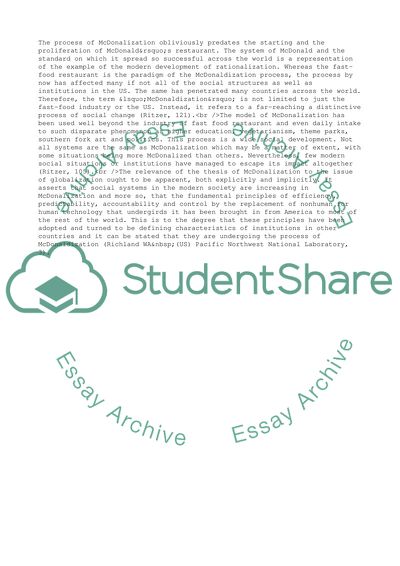Cite this document
(Mcdonaldization and it's effect on globalization Coursework, n.d.)
Mcdonaldization and it's effect on globalization Coursework. https://studentshare.org/business/1631733-mcdonaldization-and-its-effect-on-globalization
Mcdonaldization and it's effect on globalization Coursework. https://studentshare.org/business/1631733-mcdonaldization-and-its-effect-on-globalization
(Mcdonaldization and it'S Effect on Globalization Coursework)
Mcdonaldization and it'S Effect on Globalization Coursework. https://studentshare.org/business/1631733-mcdonaldization-and-its-effect-on-globalization.
Mcdonaldization and it'S Effect on Globalization Coursework. https://studentshare.org/business/1631733-mcdonaldization-and-its-effect-on-globalization.
“Mcdonaldization and it'S Effect on Globalization Coursework”. https://studentshare.org/business/1631733-mcdonaldization-and-its-effect-on-globalization.


